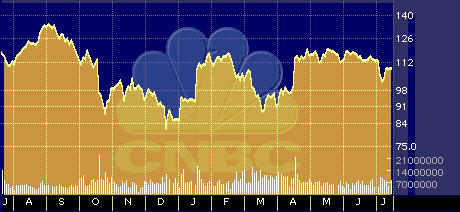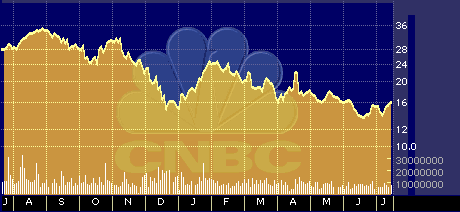
Pending Red Hat IPO Boosts Server Market
Pending Red Hat IPO Boosts Server Market
by Hal Plotkin
Silicon Valley Correspondent
Jul 27 1999 9:36AM ET
The recent IPO filing by software vendor Red Hat, Inc. signals increased demand in the fast-growing market for a widely accepted operating system that competes with Microsoft products.
The Durham, N.C.-based company’s IPO is expected to contribute to the success of other “open source” vendors and foreshadows additional open source IPOs. (Open source vendors sell products that freely share their programming language with other vendors, who can then write other programs without paying licensing fees.)
“There is a substantial business market that exists for open source software products,” says Stacy Quandt, an analyst at Giga Information Group, based in Santa Clara, California.
In addition to raising an estimated $60.1 million dollars, after expenses, Red Hat is also generating increased attention for the business model pioneered by the company.
The Linux operating system, invented by a volunteer global team of software programmers led by former University of Helsinki student Linus Torvalds, is the most popular and well-known open source software. Red Hat distributes a version of the Linux operating system.
San Jose-based Dataquest estimates that Linux will account for 3.4 percent of worldwide server revenue, or $1.9 billion dollars, by 2003. In terms of volume, that translates into 450,000 units.
However, a recently published Dataquest report suggests that Linux servers will also account for approximately 24 percent of worldwide server support revenue, or $3.8 billion dollars, over the same time frame.
That means Linux is gaining an important foothold with one of the most important groups in the server software food chain, the vendors of server appliances, who may well influence future purchasing decisions against Microsoft {MSFT} and other big vendors in favor of the open source Linux operating system.
Besides the ease with which it can be modified or adapted by users, the Linux operating system is taking hold in the marketplace for one other very good reason: it’s free.
Vendors like Red Hat make their money by selling service, product enhancements, and documentation. Red Hat also sells a boxed version of the software for customers who don’t want to go through the trouble of downloading the product.
Red Hat posted sales of $10.7 million dollars in 1999, up from $5.15 million in 1998. The company’s net loss in 1999 was $91,000, compared with $8,000 in 1998. Red Hat investors include Intel, Compaq, IBM, and Oracle.
Recent announcements from hardware vendor International Business Machines {IBM} are also giving Red Hat another big lift.

IBM 52-week price chart
IBM recently released a beta, or test version, of its popular DB2 relational database that is compatible with Linux.
Major corporations use DB2, and other databases, to store and process information about their products, customers, and services. IBM has also announced it will be making a range of other IBM hardware products Linux-compatible by year end. Meanwhile, database vendor Oracle {ORCL} is moving in the same direction.
Although open source software still represents just a tiny fraction of the overall software market, the support Red Hat is receiving from mainstream computer companies suggests these companies are aiming at reducing Microsoft’s power within the industry.
By migrating applications and hardware to the Linux platform, these competitors hope to find a way to go around Microsoft and, eventually, reach beyond the server market to offer consumers a new generation of non-Windows dependent computer products.
Compaq, for example, recently announced the development of a prototype personal digital assistant (PDA), called the Itsy, that runs on the Linux operating system.

CPQ 52-week price chart
“Linux will continue to grow as an operating system deployed on new server hardware, but much of the hype surrounding Linux will fade once Microsoft ships and then delivers a service pack for Windows 2000 server,” predicts Kimball Brown, chief analyst for Dataquest’s Emerging Server Technologies Worldwide program in a recent report.
“However, in the server appliance market, we believe Linux is becoming a credible and favorite operating system used by server appliance vendors.”
Red Hat’s IPO filing indicates the company will offer 66.6 million shares at between $10 to $12 each. 800,000 shares have been reserved for directors, officers, friends, and employees of Red Hat. No date has been set for the offering.
Smaller companies, such as Caldera Systems Inc., are also gearing up for a potential IPO by offering a wide range of products that support Linux.
Oram, Utah-based Caldera recently announced pacts with International Business Machines and Computer Associates to distribute and manage Linux software. The privately held company is part of a holding company managed by Raymond Noorda, the former CEO of Novell Inc.


